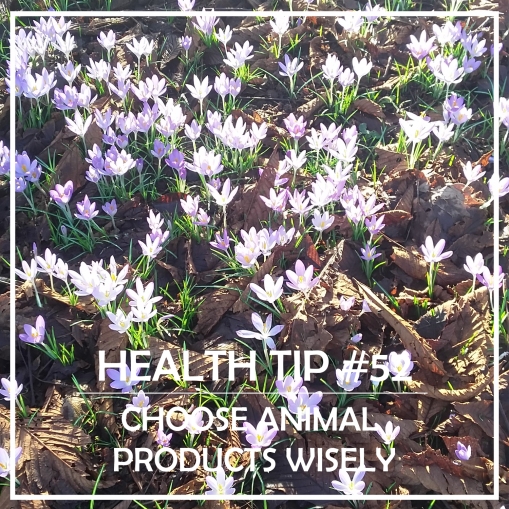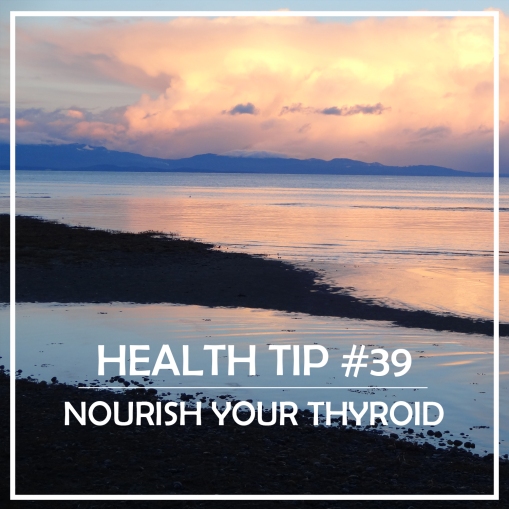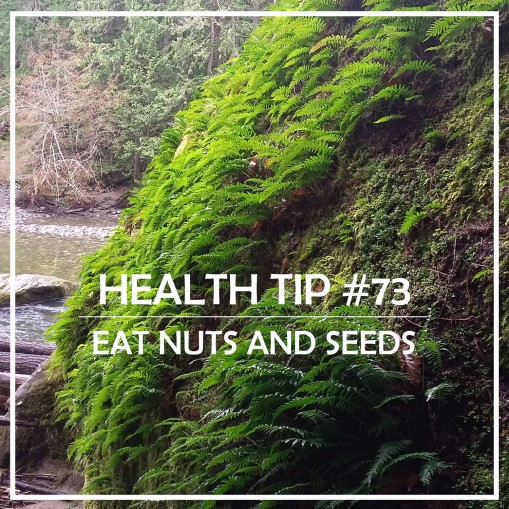
Tag Archives: antioxidants
Health Tip #52

Article to come…
Health Tip #46

What’s wrong with coffee?
If you depend on coffee to get you going in the morning or as an afternoon pick-me-up, you could be suffering from adrenal dysregulation. Caffeine too late in the afternoon can disturb sleep which affects brain health, weight management and our body’s detox and repair. Coffee is also a diuretic and can be dehydrating, especially if you drink coffee instead of drinking water. Caffeine can also raise stress hormone levels like cortisol which make us store fat (particularly in our mid section). Caffeine can also interfere with thyroid medication if taken at the same time.
Benefits of coffee
On the other hand, …recent studies have found that caffeine containing beverage such as tea and coffee have certain health promoting benefits. Coffee is North Americans #1 source of antioxidants. This isn’t because coffee is the most highly antioxidant food, but because of the sheer amount of coffee we drink. Some of the health benefits found include: reduced stroke risk, lower rates of heart disease, lowered risk of type 2 diabetes, lower risk of heart rhythm problems, increased blood flow to blood vessels, lower risk of premature death, lower risk of Parkinson disease, lower risk of heart disease.
One man’s food is another man’s poison
Some experts even tell us caffeine’s effects on the body are not the same for everyone. We all have the gene CYP1A2 which helps break down toxins. This gene comes in two types, 1A and 1F. If we have the 1A version of the gene, coffee reduces our risk of heart attack. But if we have the 1F version, coffee increases our risk of heart attack.
Choose wisely
To receive the benefits from drinking coffee and to minimize the negative side affects experts warn to choose our coffee wisely.
In order to receive health benefits from coffee the quality of the coffee must be considered. According to Dave Asprey of Bulletproof Coffee, most studies which show that coffee is unhealthy, do not control for the production process behind the coffee. Different processing methods introduce radically different amounts of potent toxins into the coffee.
Asprey asserts, good coffee = good performance. Bad coffee = bad health.
“Clean” coffee needs to have minimal contamination from mycotoxins (mold toxins). Coffee is also one of the most heavily sprayed crops. Most conventional coffee is contaminated with pesticides. Ground coffee is also prone to rancidity. Adding dairy to our coffee can interfere with some of the beneficial effects. Sugar in our coffee only adds to the likelihood of developing insulin resistance. White, chlorine bleached coffee filters can leach into our coffee.
Some attributes of a good quality coffee are that it is: tested for mycotoxins, organic, fair-trade, freshly ground (not pre-ground), and dark roast.
Limit coffee intake
Besides the quality of the coffee, Asprey goes on to say:
High amounts of caffeine can cause problems such as decreased insulin sensitivity, impaired brain function, jitters, nervousness, stomach discomfort, and decreased exercise performance. As with any drug, you can overdose. Moderate amounts of coffee will do nothing but good for most people.
Experts suggest limiting our coffee intake to 1 or 2 cups in the morning and switching to green tea in the afternoon. Coffee should be strictly avoided for pregnant women. As with coffee, the quality of green tea that we choose should be carefully considered. Many green teas from China are contaminated with lead. Japanese green tea is a better choice. Tea also readily absorbs fluoride from the soil it is grown in which can be a problem for those with thyroid dysregulation.
And as mentioned before, when we need that morning cup of coffee to get us going, we may be dealing with much bigger issues. Limiting coffee, restoring our adrenals and getting our hormones in balance should be the first line of business.
Health Tip #39

What is the thyroid?
The thyroid is an endocrine gland. It helps to regulate metabolism and weight. Thyroid hormones influence every cell and process in the body including growth and development.
How does it work?
The thyroid produces three types of hormones: T3, T4, and T2. These hormones interact with all other hormones in our bodies. The liver converts T4 into T3 (the active form). T3 lowers cholesterol levels, regrows hair and helps maintain body weight by controlling metabolism. T3 can be disrupted by stress, infections, nutritional imbalances, toxins and allergens.
Hypothyroidism
Hypothyroidism is and under-active thyroid, when when our bodies don’t produce enough thyroid hormone. Many, many people have sub-clinical hypothyroidism with no obvious signs or symptoms.
-
Symptoms of Hypothyroidism
- Some symptoms of Hypothyroidism include: tiring easily and lack of sustained energy, depression, feeling of a “heavy” head, falling asleep sitting up, weight gain, dry skin and chronic hives, hair loss, always feeling cold, low basal body temperature, stiff and popping joints, tingling and numbness.
Hyperthyroidism
Hyperthyroidism is an over-active thyroid, when the thyroid secretes too much T4.
-
Symptoms of Hyperthyroidism
- Some symptoms of hyperthyroidism are: protruding eyes, menstrual cycle irregularities, weight loss, heartbeat irregularities, emotional instability, lack of mental focus, nervousness, restlessness, and frequent bowel movements.
Possible Causes of Thyroid Dysfunction and What to Avoid
Some possible underlying causes of thyroid dysfunction include: radiation exposure, chronic stress, nutrient debt (from eating processed foods, low HCl and malabsorption), heavy metal accumulation, pesticides, halogens (bromides, fluoride, chlorine), dysbiosis, free radical damage (low antioxidants), low iodine levels, low selenium levels, yo-yo dieting, metabolic syndrome (insulin resistance) and goitrogens (in soy and cabbage family foods), Food allergies and sensitivities, and gluten sensitivity.
Testing thyroid function
Lab tests may be done to access the function of the thyroid including: TSH test, free T4 and free T3 test, and a thyroid antibody test to test for an autoimmune reaction. A self test can be performed as an initial indicator of low thyroid by taking our temperature, with a basal body thermometer, each morning, before getting out of bed, for at least three days. Average body temperature measurements should not be below 97.6 degrees Fahrenheit or 36.4 degrees Celsius.
What to Add In
Things to add in to our diets and lifestyles to nourish the thyroid include:
- “Clean” whole foods (as opposed to processed foods) to help reduce her exposure to toxins in the diet, particularly pesticides as they interfere with iodine uptake.
- Shop the outside perimeter of the grocery store looking for nutrient dense, unprocessed whole foods.
- A primarily plant based diet of brightly colored vegetables and fruits, nuts and seeds, will provide her with plenty of fiber and antioxidants.
- Meals including protein and healthy fats to help us feel more satisfied and support blood sugar stability. healthy fats such as butter, coconut oil, egg yolks and omega 3 oils (like those found in cold water fish, walnuts and pecans, will not make us fat but instead nourish the thyroid and help to regulate our weight).
- Slow down, careful chewing, avoiding or limiting convenience foods (which lead to inflammation and thyroid problems), as well as drinking between meals (not with meals) so as to not dilute HCl.
- Drinking pure or filtered water, which does not contain any fluoride or Chlorine.
- Sea foods and Sea vegetables, (such as: kelp flakes or mixed seaweed flakes), rich in trace minerals and iodine, have a salty flavor and can be added (undetected) to soups and stews. Note: Iodine containing foods are recommended for non-autoimmune thyroiditis only. For autoimmune thyroiditis (Hashimoto’s), they should be avoided.
*For more information on Hashimoto’s and molecular mimicry, see my tip on going gluten free.
Health Tip #37

Chronic Inflammation is a precursor to degenerative diseases and to us meeting an earlier end. Chronic inflammation can often be silent, or go unnoticed until symptoms of degenerative disease begin to show themselves. The best way to offset this tendency toward degeneration is to add in anti-inflammatory foods. As it turns out, anti-inflammatory foods are the real, whole foods we have been discussing thus far.
Vegetables and Fruits
As we have discussed before, brightly colored fruits and vegetables should cover the majority of your plate at any meal. We should try to eat a rainbow of fruits and vegetables. Some of the best anti-inflammatory fruits and vegetables include berries like blueberries, orange and yellow fruits and vegetables, dark leafy greens, and cruciferous vegetables (broccoli, cabbage, Brussels sprouts, kale). When considering brightly colored produce, don’t forget about the anti-inflammatory herbs we discussed in the last post such as garlic, ginger, turmeric and cinnamon. Fermented vegetables such as kimchee, pickles and sauerkraut should also be considered. Shiitake mushrooms are also an anti-inflammatory addition as they help to mitigate oxidative stress.
Grains and Legumes
If including grains and legumes in the diet, make sure they are whole, soaked or fermented and properly prepared for proper digestion. Flour based, processed grains should be avoided. As we’ve discussed in a previous posts, rather or not gluten is included in the diet should be carefully considered. If it is included, proper preparation is crucial. Organic, fermented soybean products such as natto, miso and tempeh can also be added.
Fats
Adding in healthy fats (coconut, avocados, raw nuts, olives, coconut oil, and cold-pressed olive oil) and the elimination of bad fats (highly processed vegetable oils like canola oil, soybean oil, margarine and hydrogenated oils/trans fats) is crucial in the anti-inflammatory diet.
Omega 3 foods such as cold water, fatty fish such as wild salmon, sardines, anchovies and herrings should also be included in an anti-inflammatory diet.
Protein
In general, in our western diets, we tend to eat too much animal protein. A vegetable based diet is best and a little good quality animal protein goes a long way. If you can, choose wild local seafood, local grass-fed meats and dairy products.
Other Anti-Inflammatory Foods
Other anti-inflammatory foods to consider in your diet are green tea, tulsi tea, matcha and dark chocolate for their antioxidant content.
Avoid Processed Foods and Sugar
One of the most important things to remember when eating an anti-inflammatory diet is to avoid processed foods, especially those containing processed sugars and bad fats. Regular consumption of flour based foods and refined sugars should be avoided as insulin resistance leads to chronic inflammation and degenerative disease.
Health Tip #36

The subject of herbs is a big topic!
There are culinary herbs, herbal teas, super food herbs, tonic herbs, fresh herbs, dried herbs, powders, tinctures, oils… just to name a few. Each area on it’s own is a vast area study. For the purpose of this tip, we’re going to keep it simple. We are going to speak in very general terms about the benefit of culinary herbs.
Herbs offer health benefits
Herbs have been used for their medicinal properties for thousands of years prior to man made pharmaceuticals.
Just adding culinary herbs into our diets provides antioxidants, flavonoids, vitamins, minerals and dietary fiber. Culinary herbs alone offer a nutritive boost to our meals as they offer health benefits such as protecting against disease and clearing toxins from the body. Some of the most antioxidant-rich culinary spices include cloves, cinnamon, oregano, rosemary, ginger, black pepper, paprika and garlic.
Herbs like ginger treat nausea, and have antiviral compounds. Licorice, turmeric, black pepper and oregano boost the immune system. Turmeric, cloves, nutmeg, ginger, peppermint and cinnamon are anti-inflammatory. Curcumin (the yellow/orange color) in turmeric has been highly studied for it’s anti-cancer effects. Adding cinnamon to our diets has shown to lower blood sugar and improve insulin sensitivity.
Herbs can be added to all of our meals, as well as to smoothies and hot and cold beverages. Which ever way we choose to add herbs to our lives, they are a great addition to our whole foods diet. A great local source of high quality herbs is Harmonic Arts Botanical Dispensary.
Health Tip #33
Only crazy people buy organic, right?
When I first saw a person filling their cart with overpriced, organic produce at the health food store, I thought they were crazy. Years later, that crazy person and I became friends and I became the crazy person filling my cart with organic produce. So what changed in my understanding between then and now that made me want to spend my hard earned money on organics?
Reasons to choose organic
Why, when studies have shown that organic and conventional foods have similar levels of of nutrients, would I be willing to dish out the extra dough? The reasons are many. Below is a brief look at some of the reasons to choose organic over conventionally produced foods:
- studies have shown that organic produce contains considerably more antioxidants
- organically grown foods better maintain the integrity of the soil and the diversity of microorganisms. These microorganism maintain the soils healthy ecosystem and make nutrients in the soil bio-available to the plants, making healthy more diseases resistant plants. The plants then pass the nutrients on to us when we eat them. Conventional practices destroy this ecosystem.
- Pesticides are used in the production of conventional fruit, vegetables, wheat, corn, grain products and livestock feed.
- Pesticides bio-accumulate up the food chain in animal products such as dairy, eggs, meat and fish.
- Pesticides have toxic effects on the body linked to cancer, hormone disruption, reproductive issues and damage to unborn children.
- Pesticides are antibiotic in nature and disrupt our gut microbiome, leading to inflammation and physical and mental ailments.
- Conventional agricultural practices can cause toxic run off from fields, contaminating water ways and wildlife.
- According to the Environmental Working Group, conventional produce most heavily laden with pesticides include: strawberries, apples, grapes, peaches, nectarines, celery, cherries, spinach, tomatoes, sweet bell peppers, cherry tomatoes and cucumbers. But it is the potato that boasts most pesticides by weight than any other produce.
- Illegal pesticide residues are three times as likely to be found in imported produce. Notice where your produce is coming from.
Do we always need to choose organic?
Other options are available to us other than just having to buy everything certified organic. Some of these options include:
- harvest wild edibles
- grow your own garden
- buy from a local farmers’ market where produce may not be officially organic but comes from a local “pesticide free” or “no spray” farm.
- wash all your produce thoroughly in a sink of water and hydrogen peroxide to pull pesticides and pathogens off the surface. (Note this is only a surface treatment.)
- Peel produce to reduce surface contamination (although much of a fruit or vegetables nutrients and antioxidants are in the peel).
- Vary your intake of different produce and sources.
- When buying conventionally produced fruits an vegetables, stick to the Environmental Working Group’s Clean Fifteen including: avocados, [non-GMO] sweet corn, pineapples, cabbage, frozen peas, onions, asparagus, mangoes, [non-GMO papayas], kiwis, eggplant, honeydew melon, grapefruit, cantaloupe, and cauliflower. Of these, avocados were the cleanest.




Recent Comments